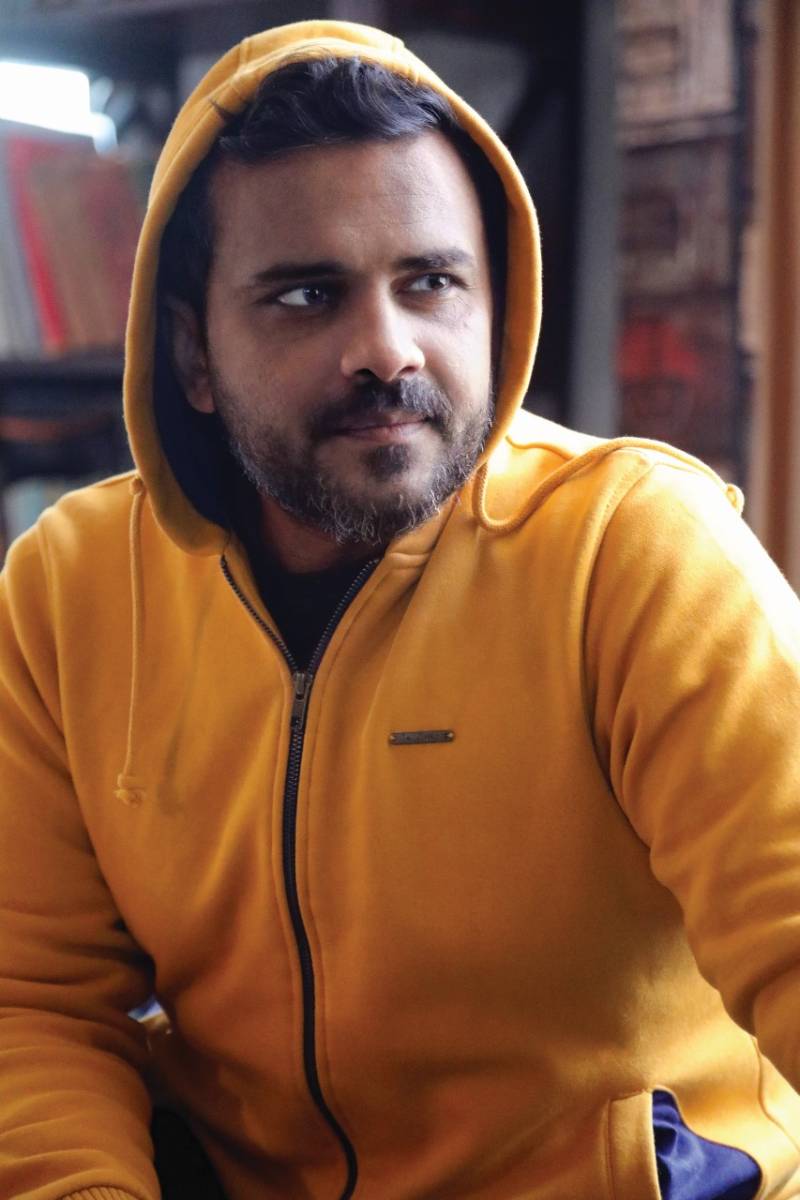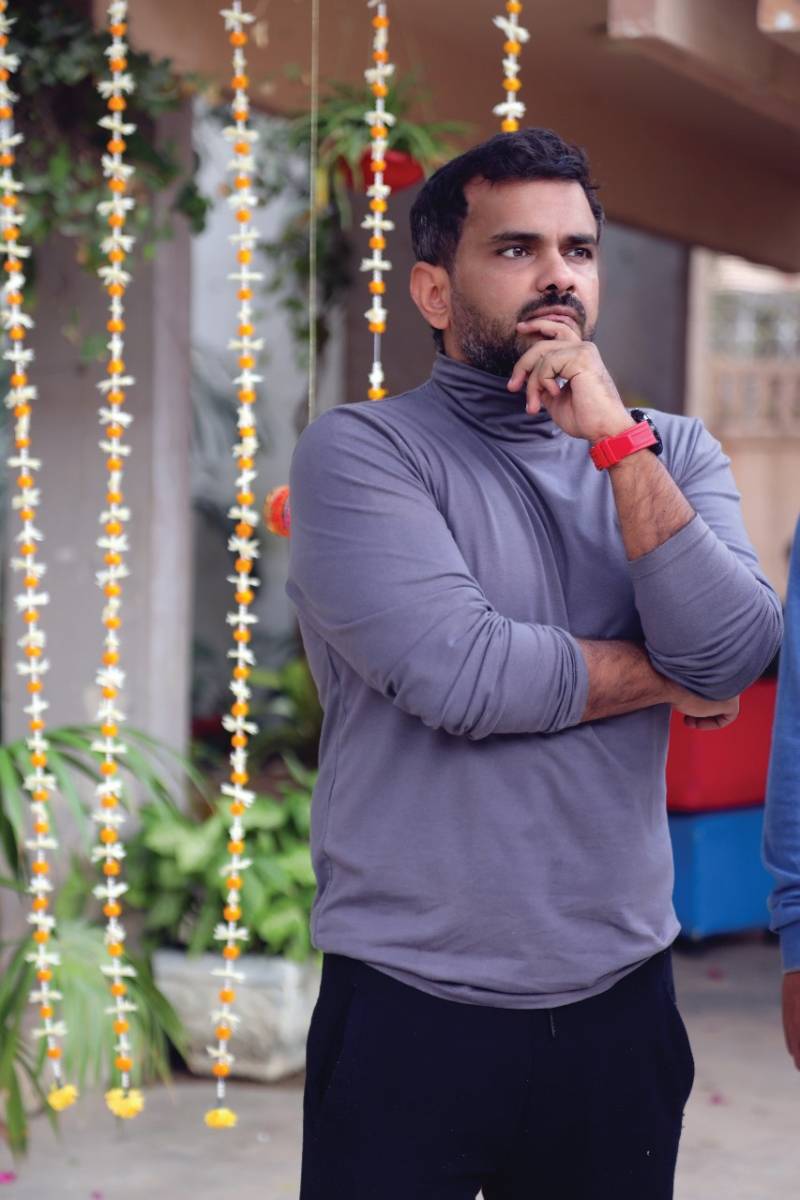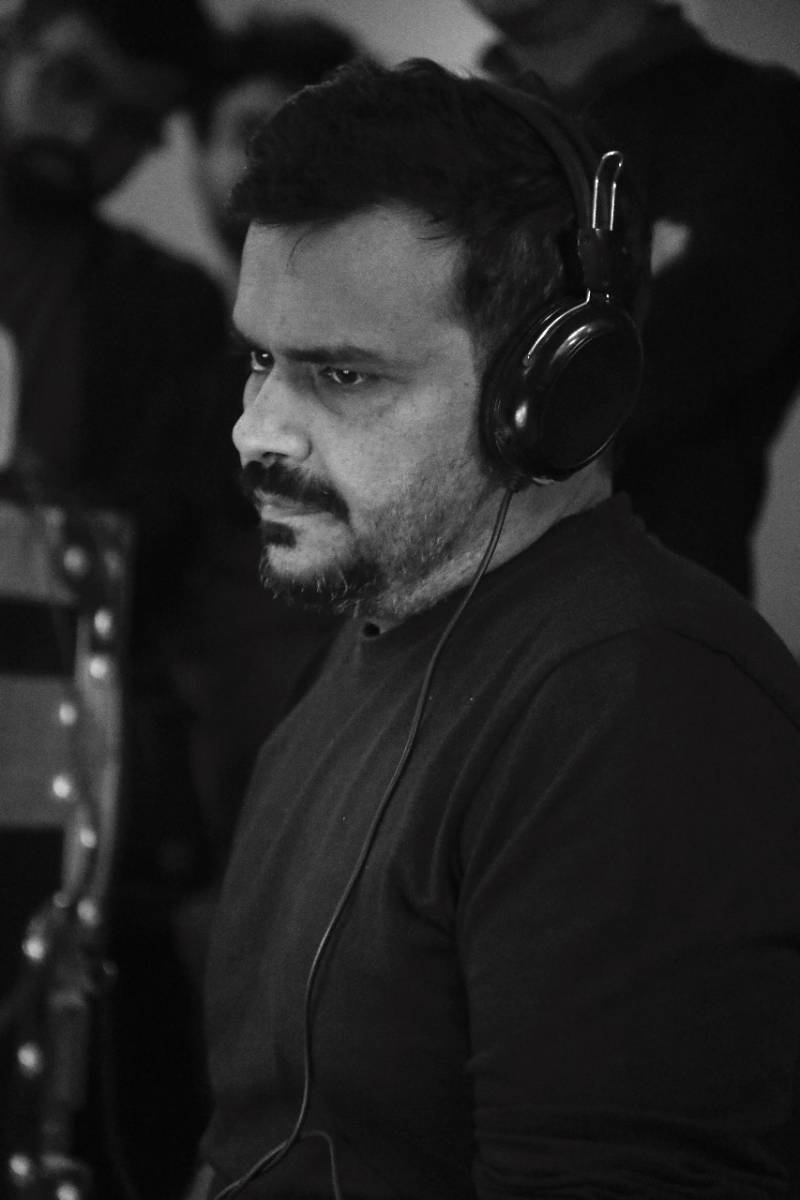Directing Excellence | Badar Mehmood on 'Kabhi Main Kabhi Tum' and Storytelling

Few directors in Pakistani television have made as significant an impact as Badar Mehmood. Known for his meticulous attention to detail and his ability to bring out the best in his actors, Badar has consistently delivered captivating dramas that resonate deeply with audiences. In this exclusive interview, we explore the creative mind behind some of Pakistan’s most beloved series. From his unique directorial style to the nuances of casting powerhouse duo Fahad Mustafa and Hania Aamir together for the first time, Badar shares his insights on storytelling, the evolution of digital streaming, and the themes that drive his work. Join us as we explore the journey of a director who continues to shape the narrative of Pakistani drama with each new project.
"Hania and Fahad quickly immerse themselves in any role, bringing new dimensions to their characters."
What unique aspects did Fahad Mustafa and Hania Aamir bring to their roles, and how did their first-time pairing influence the dynamics on set?
Hania and Fahad are incredibly talented actors, having already portrayed numerous characters with remarkable skill. They quickly immerse themselves in any role, which eases the director's workload by ensuring authentic characterization, behavior, and body language. New pairings like theirs always add a fresh element to the screen, and they brought new dimensions to their roles compared to their previous dramas.
"This drama transcends a typical love story, emphasizing strong family bonds and respect for elders."

Each director has a unique fingerprint. How do you think this drama has evolved or deviated from your typical directorial style?
Indeed, every director has their distinctive style, comfort zone, and storytelling approach. Despite these factors, I was keen on directing a straightforward romance story. Fortunately, I collaborated with the excellent writer Farhat Ishtiaq, and we shared our ideas for this drama. This project excited me immensely as it marked a slight departure from my usual style.
"Digital streaming has become essential, but my core principles and storytelling remain unchanged."
What are the core emotions or themes you aimed to resonate with your audience through this drama?
This drama transcends a typical love story. While romance is a key element, it also emphasizes strong family bonds, respect for elders, and the value of these relationships. As directors, it's our duty to highlight these values, which are gradually diminishing in society. Additionally, the story touches on the societal belief in standing by each other through both good and tough times, fundamentally transforming relationships. Above all, it showcases the enduring love and support between a husband and wife.
"I focus on creating masterpieces without aiming to alter trends. It's the viewers who drive these trends."
What led you to cast Fahad and Hania together for the first time, and how did their real-life personalities influence their on-screen dynamics?
I had worked with Fahad Mustafa a decade ago and had tried multiple times to bring him back to drama, but he was unavailable. Viewers were eagerly awaiting his return, and so were we, especially me, hoping to direct his comeback. One day, during a story discussion, Fahad spontaneously decided to take on this drama, which was a fortunate moment for me. Fahad is known for his quick decision-making. Regarding Hania Aamir, she was working on her third project with me, and I was confident in our working relationship. Our writer Farhat Ishtiaq also wanted Hania in this drama. On set, Fahad and Hania are highly energetic and quickly embody their characters, which is truly impressive.

How do you think the themes explored in this drama reflect or diverge from current trends in Pakistani television?
I never direct with the intention of changing trends or narratives. Trends in the drama industry shift when a project becomes popular with audiences. Consistent work in a particular trend gradually changes the narrative. I focus on creating masterpieces without aiming to alter trends. Ultimately, it’s the viewers who drive these trends, and if they enjoy a drama, trends will naturally follow.
"The story touches on the societal belief in standing by each other through both good and tough times."
How has the evolution of digital streaming platforms affected your approach to storytelling and audience engagement?
Digital streaming has become essential over the past few years, with more viewers watching dramas online than on television. As a director, I’m always mindful of the view counts on digital platforms. However, my core principles and basics remain unchanged. A good drama attracts viewers to its first episode, and from there, they continue watching subsequent episodes. Digital platforms mainly impact on-screen presentation, but my thought process, storytelling, and direction remain consistent.

What part of the filmmaking process do you find most creatively fulfilling, and how do you navigate the challenges that come with it?
I find every part of filmmaking creatively fulfilling, starting from plot development, storytelling, characterizations, and scripting. The drama process begins with the writer and content team, involving numerous discussions and sometimes arguments. Pre-production involves working with the designer, art director, and location scouting, which I enjoy. Execution on the ground might require adjustments to plans. Following this, I work with the wardrobe designer and execute scenes. Post-production, editing, music, and promotions follow. I enjoy each step and cannot single out one favorite part.
"My turning point came when I directed hit projects like 'Cheekh,' 'Ishqiya,' and 'Dunk.'"
Can you share insights into how you select projects and what elements a script must have for you to consider directing it?
A story that resonates with me is what I choose to direct. I look for projects where I can make a significant contribution from a directorial perspective. I am fortunate to receive support from production houses and channels for the stories I wish to direct. I have worked on dramas addressing various societal issues, including social and family issues, thrillers, and love stories. There is no strict criterion; if a story attracts me, I will direct it.
Reflecting on your career, which project do you feel was a turning point for you professionally, and why?
I've directed over 25 drama serials, and I am fond of all of them. My turning point came around 2017 or 2018 when I began directing several hit projects like 'Mubarak Ho Beti Hui Hai,' 'Bhala,' 'Aasi Hai Tanhai,' 'Cheekh,' 'Ishqiya,' 'Dunk,' 'Mujhe Pyaar Hua Tha,' and 'Mein.' These dramas were very popular and received incredible feedback, marking the peak of my career.
Looking back at the completion of this project, what part of the drama are you most proud of, and why?
I cherished every moment of this drama. From the first day, collaborating with the writer Farhat Ishtiaq and Content Head Parisa, to the final day of the shoot, it was a fulfilling journey. I am excited about the upcoming editing process as well. Working with talented individuals like Fahad Mustafa, Hania Aamir, Javed Sheikh, Bushra Ansari, Emmad Irfani, Maya Khan, Naeema, and Tousif Haider was a proud moment. The hard work of the entire team throughout the shooting process makes me proud.
INTERVIEW: SUNDUS UNSAR RAJA
PR & COORDINATION: SYEDA OMAMA FATIMA
